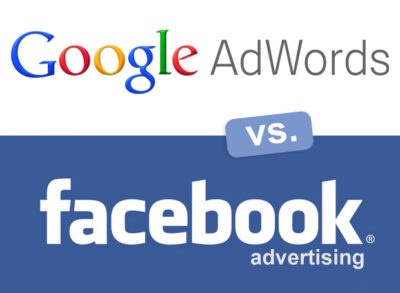
Google vs. Facebook Paid Advertisements for Ecommerce: A Detailed Comparison
When it comes to driving traffic and sales for Ecommerce, choosing the right advertising platform is crucial. Two major players in this space are Google and Facebook. Both offer powerful paid advertisement options, but they cater to different needs. This blog post will show Comparison of Google vs. Facebook paid advertisements for Ecommerce, helping you decide which platform suits your business best.
Understanding Google Paid Advertisements
Google Ads, formerly known as Google AdWords, is a leading platform for paid advertisements. With Google Ads, businesses can create ads that appear in Google search results and on its vast network of partner sites. These ads can be highly targeted based on keywords, location, and more.
One of the key advantages of Google Ads is its intent-based targeting. Users search for specific terms, indicating their immediate intent to buy. This high intent can translate into better conversion rates for Ecommerce businesses. Additionally, Google Ads offers robust analytics, allowing you to track performance and adjust strategies accordingly.
Exploring Facebook Paid Advertisements
On the other hand, Facebook Ads allows you to target users based on their interests, demographics, and behaviors. Unlike Google, which targets based on search intent, Facebook targets based on user profiles and activity. This makes Facebook Ads ideal for reaching audiences who may not be actively searching for products but are likely to be interested.
Facebook’s visual ad formats, such as carousel ads and video ads, provide engaging ways to showcase products. Furthermore, Facebook’s extensive targeting options let you create highly specific audience segments. This can be particularly useful for brand awareness and nurturing potential customers through the sales funnel.
Key Differences Between Google and Facebook Ads
Targeting Methods
Google Ads targets users based on search queries. This means your ads appear when users search for specific keywords related to your products. In contrast, Facebook Ads targets users based on their behavior and interests. For example, if someone frequently interacts with fashion content, they might see ads for your clothing store.
Ad Formats
Google Ads primarily uses text-based ads that appear in search results and on partner websites. These ads are straightforward and geared towards capturing users with high purchase intent. Facebook Ads, however, offers various ad formats including images, videos, and interactive carousels. These formats are designed to engage users and build interest.
Audience Intent
With Google Ads, users are actively searching for products or services, indicating high purchase intent. This often results in higher conversion rates. Facebook Ads, while excellent for reaching new audiences, may not always target users with immediate buying intent. Instead, it focuses on creating interest and building brand awareness.
Cost Structure
Google Ads often operates on a cost-per-click (CPC) basis, meaning you pay when someone clicks your ad. The cost can vary based on competition for keywords. Facebook Ads, on the other hand, usually operates on a cost-per-impression (CPM) or cost-per-click basis. Generally, Facebook Ads can be more cost-effective for reaching larger audiences, especially for brand-building campaigns.
Which Platform is Best for Ecommerce?
Choosing between Google and Facebook Ads largely depends on your Ecommerce goals. If your primary objective is to capture high-intent customers and drive immediate sales, Google Ads might be your best bet. Its search intent targeting ensures your ads reach users who are actively looking to purchase.
Conversely, if you aim to build brand awareness and engage potential customers through captivating visuals, Facebook Ads could be more effective. Facebook’s detailed targeting options and diverse ad formats are perfect for reaching a broad audience and nurturing them over time.
Conclusion
In summary, both Google and Facebook offer valuable advertising opportunities for Ecommerce. Google Ads excels in capturing high-intent traffic and driving immediate conversions. Facebook Ads, with its rich visual formats and detailed targeting, is ideal for building brand awareness and engaging potential customers.
Ultimately, the best choice depends on your specific goals and target audience. Many successful Ecommerce businesses use a combination of both platforms to leverage their unique strengths. By understanding the differences between Google and Facebook paid advertisements, you can craft a more effective advertising strategy for your Ecommerce business.
